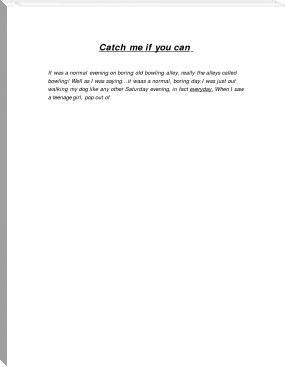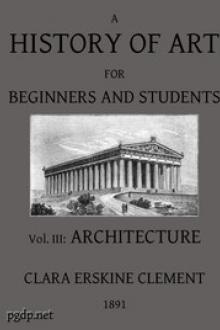From Across the Room, Gina L. Mulligan [year 7 reading list txt] 📗

- Author: Gina L. Mulligan
- Performer: -
Book online «From Across the Room, Gina L. Mulligan [year 7 reading list txt] 📗». Author Gina L. Mulligan
My darling, of course I understand why you want to go to Albany for Thanksgiving. As you enjoy a few weeks visiting with your sister and her husband, you must promise to imagine me brushing your knee under the dinner table. My plan was to endure Mother’s wrath and remain here with cold turkey and a warm pen, but I have already accepted an unexpected invitation.
I am celebrating with my new neighbor, Mrs. Abigail Winchester. Though she was startled by my armed intrusion as she arranged glass beakers in a china cupboard (I was startled by glass beakers in a china cupboard), she appreciated my readiness to combat bandits and invited me for tea.
The parlor walls were washed with a pale stain giving them a feel of European antiquity but formal portraits rested against the walls and the tea service sat on two moving crates. Except for a few servants, the aged woman is alone. She explained her husband died several years ago from what she called a “hunting accident.” It seems his train derailed while traveling home after shooting a moose in Alaska. He survived the disaster but was then run down by a herd of fleeing elk. I stayed for a second cup.
She touted the virtues of naturalism though proclaimed a preference for staying indoors and addressed her girl in French. After the third request to remove the tea service, Mrs. Winchester snapped, “I said take it away.”
The girl replied, “Sorry, ma’am, but I don’t speak French. Begging your pardon, I told you that yesterday.”
Mrs. Winchester huffed and said, “Yes, I know, but that shouldn’t be my problem.”
I expect Thanksgiving will be quite interesting.
Mary, I should return to my work. Distraction is my failing. I pray you enjoy visiting your sister even though our letters must wait for your return. Also, please ask Miss Ross to take more care. I see no reason for her to have delivered my last letter in your parlor. It is most critical your father is unaware of our correspondence. Are you certain he did not see my seal?
With love,
Thomas
November 12, 1888.
MARY —
Your last letter was delayed by the bumbling post. By now you have left for Albany, so I am left to stew.
With all due respect, was your father drunk when he made such an appalling request? He has again baffled me. Does he know his irrational and impetuous actions are potentially dangerous? Mary, you must refuse him at once.
Thomas
November 28, 1888.
DEAR ABIGAIL —
I feared my anecdote about mistaking Miss Astor’s elaborate wig for a travel bonnet and asking to hang it in the cloak room was in poor taste until your psychic lost a full glass of Bordeaux through her nose. Thank you for an uncommon Thanksgiving. Also, I appreciate your assistance with my delicate situation.
Your acquaintance, Mr. Everett, sent a note stating his prowess in the practice of “private and discreet investigations.” Though securing a referral for this type of personal research has proven difficult, do you stand by this man’s reputation?
As it is too late to develop a musical talent and my clumsiness prevents me from performing card tricks, I caution that if I am again invited to your magnificent home the only entertainment I can offer is amusing tales.
With gratitude,
Thomas M. Gadwell
P.S. — Did your driver have an errand after the party? I was surprised to see another carriage on the road in the wee hours.
November 28, 1888.
DARLING MARY —
I know you are still at your sister’s house but I must write about Thanksgiving dinner before I forget even one fantastic detail. The outlandish folly was a welcomed distraction from dwelling on your father’s preposterous demand. Still, I am beginning to wonder if your father’s unpredictability is his most reliable quality.
Our hostess for dinner, Abigail Winchester, hails from Long Island so I thought it curious she planned her holiday celebration away from home. I soon discovered the dinner party was not in good measure by Southampton standards. This of course made the evening even more enjoyable.
The night was brisk, but Winchester Manor (to which it is now referred) is a short jaunt so I ferried myself in the open coupé. I dressed without imagination in a black tailcoat tuxedo with a white bow tie and collar. My beaver-trimmed overcoat was comfortable, but during the ride I wished I had exchanged my top hat for a wool deerstalker. In fact, a flannel checkered hat paired with my black bib and tucker would have been better suited for the evening’s nip and company.
While the estate has a gilded ballroom sought after by Mrs. Vanderbilt, the road to the house runs along a treacherous ledge hovering high above the sea. Wind swept up the bluff in furious bursts jerking the carriage from side to side. My steed’s gait was erratic on the loose gravel, and twice he stopped and tried to back up. When I had at last reached the final turn, a strong gust pushed the tilbury toward the edge of the cliff. Fowler can make the minor repairs, but my father’s lesson on taut wheel bolts has not left my mind.
My nerves more than a bit shaken, I arrived to find a row of blazing torches and counted four carriages stowed in front of the house. As my feet touched the ground, a stable boy wearing leather leggings, moccasins, and a feather headband took my coach. The stressful journey was forgotten.
The house is styled after the Palace at Versailles in Paris, though Mrs. Winchester, who insisted I call her Abigail, may indeed have more bronze statuary in the gardens. Tall columns support an elaborate portico embellished with gilded winged cherubs, and two-story windows line the flat façade of the seventy-room estate.
True to the exaggerated architecture, I charged up a sweeping set of front steps and entered the colossal foyer through a fifteen-foot stained-glass door. The butler, an elderly man dressed in a dark coat and white gloves, took my top hat with what I later concluded was puzzlement, and directed me to the parlor.
I arrived last, a foible of some proportion as I was at least one libation behind. Then when Mrs. Winchester greeted me dressed as a Quaker preparing to break bread with her new Indian friends, I feared I had misunderstood my invitation. But, indeed, the event was not a costume ball. My eccentric host was jovial and blunt about her love of costumes and eclectic gatherings to observe interesting subjects. As is just my luck, I was one of the evening’s interesting subjects.
Mrs. Winchester wanted to know about my writing. She was curious where I found my ideas and how I could spend so many hours alone. For twenty minutes she prodded me, wanting to know if I included island gossip or chewed hallucinogens for inspiration. In exasperation, I told her authors sacrifice chickens to the gods of the press plate and bury the dead birds under a tree. The legend, of course, foretold that the larger the tree, the more readers. She squealed with delight, thought the sacrifice a marvelous idea, and insisted I conduct my next ceremony on her grounds. With Mrs. Winchester appeased, she made formal introductions. By and large I struggle to associate new names and faces. I had no difficulty whatsoever.
First introduced was a Mr. Larimore, noted American flautist with the Belize symphony. Who knew Belize had a symphony? A bony man donned in a white tail coat and red striped vest, he never took off his white gloves for fear of injuring his hands. He had a silver tuning fork poked down through the slit reserved for a boutonnière, and he spoke in short bursts about the strain of living in such a warm climate and expressed scorn for American audiences. When he boasted Europeans were true music patrons, I asked his favorite concert hall abroad. He remarked he had not yet toured Europe and left me with his companion, a Belizean named Marianna.
Marianna, also a musician, was shy but told me she played the contrabassoon before blushing and returning to Mr. Larimore’s side. Nevertheless, she had a pleasant, round face with large dark eyes that floated about the room and widened every time she looked at Madam Rousseau.
A self-proclaimed spiritualist and reader of Asian tiles, Madam Rousseau was swathed in a gold ruffled gown. Around her neck she wore a gigantic purple amethyst she claimed cured chronic back pain and boils. The thick black cord was so tight, her fleshy neck and cheeks were vermeil. Before being properly introduced, Madam Rousseau strode up to me, poked me in the stomach, and said, “You’re a mysterious and reclusive young man. There’s an indigo glow around your manhood.” At this point I begged for a glass of whiskey.
As I took my first sip, I met two men in matching violet morning coats and paisley bowties. Jarrod and Theo (they would not disclose their last names) were businessmen from Atlanta who used phrases like crooked as a dog’s hind leg, guzzled ale from a jug, and burst into song whenever the impulse struck.
I felt stiff and out of sorts in my black regalia until I met Miss Katya Petrova, a budding opera singer from Russia. For the evening she chose a modest emerald tea gown with a beaded collar and matching feather pinned in her piled hair. I found her pleasant, but as she spoke little English, she spent the evening grinning which I felt compelled to return. This grew quite tiresome.
The standard dinner fare was lavish and well served, although our host barked orders to her servants and found fault with the texture of the bread pudding. I found it rather smooth, but Madam Rousseau coughed a great deal during this course and Mrs. Winchester assumed she was choking on pieces of bread rather than acknowledge the Madam’s rather tall glass of rum.
I found a receptive audience for sharing a few of my short stories, in the broadest of outline of course, and was invited to vacation on the coast of Belize any time between the fourth and tenth of June. After dinner we were entertained with an aria from Beethoven’s Fidelio accompanied by the flute and contrabassoon, a rare and unauthorized rendition to say the least, and I concurred that with training and promotion, Miss Petrova might gain a fine reputation. However, the highlight of the evening was still to come.
Madam Rousseau, who regaled us with tales of psychic mysteries I shall someday include in a work of fiction, plucked me from the sofa and asked me to join her at the dining table. I obliged, but not before a wisecrack about also living to regret breaking plates over my head at a festival in Corfu. She muttered under her breath, a voodoo curse by the look on her face, and the entire party hurried to the dining room so she could read my tiles.
We sat across from each other at the cleared table like gamblers ready to draw, and then she pulled a gold tin from her flowing gown. She presented it to the group just as Genovese salesmen display diamond keepsakes to eager American shoppers. I must tell you, my dear, it took great restraint not to ask where on earth she kept that tin.
She removed the lid and emptied ten thick ivory tiles onto the table.





Comments (0)